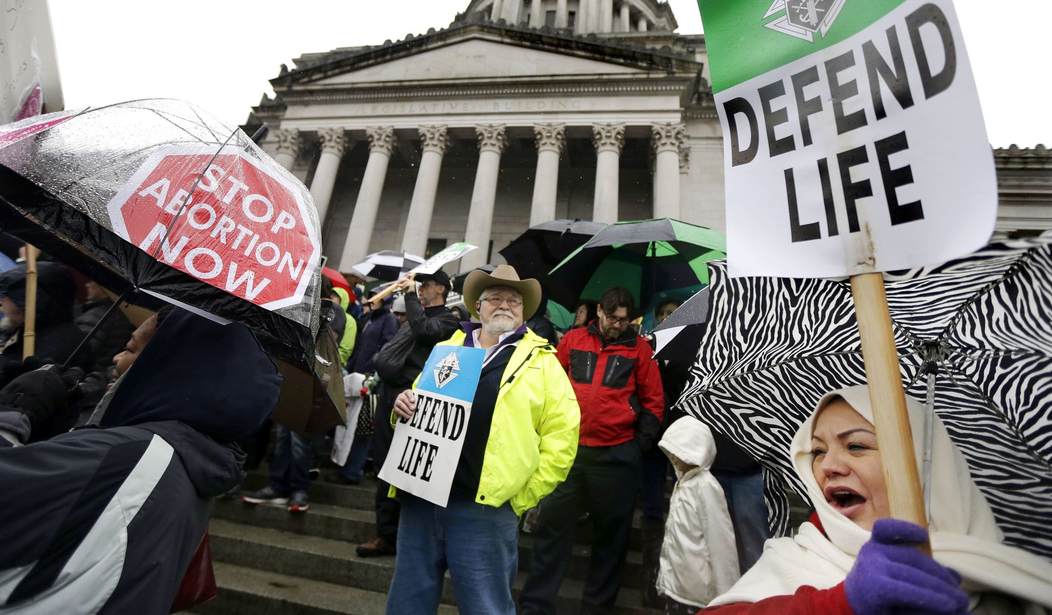On July 25, the Food and Drug Administration signed a contract to acquire "fresh" tissue from aborted babies so it could transplant that tissue into mice.
On Monday, the Trump administration canceled that contract.
This is an unambiguous victory for the sanctity of human life.
The underlying question now is: Will the federal government follow up on the cancelation of this one contract and completely and finally terminate its practice of spending approximately $100 million per year on research that creates a market for tissue taken from aborted babies?
This writer first reported about the FDA contract to acquire fetal tissue in an Aug. 7 story for CNSNews.com.
On June 13, the FDA had published a "presolicitation notice" of its intent to award the contract to a Bay Area nonprofit called Advanced Bioscience Resources.
"The objective is to acquire Tissue for Humanized Mice," the notice said. "ABR is the only company that can provide the human fetal tissue needed to continue the ongoing research being led by FDA."
The notice made clear that the government was seeking "fresh" fetal tissue.
"Fresh human tissues are required for implantation into severely immune-compromised mice to create chimeric animals that have a human immune system," the notice said.
When the U.S. House of Representatives was investigating fetal-tissue procurement practices in 2016, Harvard University presented Congress with a "background paper" in response to an inquiry from Rep. Jan Schakowsky, D.-Ill., who, as Harvard put it, was "seeking information on the past and future benefits of fetal tissue research."
Recommended
Harvard explained why researchers needed tissue from aborted babies -- rather than miscarriages -- to create mice with human immune systems, such as those the FDA was creating.
"Mice that have human immune systems are an invaluable scientific resource, but these mice are engineered to this condition only by means of the use of human fetal material," said Harvard.
"If human fetal tissue is needed, why can it not be obtained from miscarriages instead of abortion?" the Harvard backgrounder asked. "Here, timing is very important."
Remember: The FDA said it needed "fresh human tissues" to create its humanized mice.
"Almost all miscarriages happen at home or in locations in which fetal material is not recovered and, importantly, preserved in a usable state," Harvard continued in its explanation.
"Just as obtaining tissue during a scheduled surgery or an in-hospital autopsy soon after death provides tissue that is untainted by decay relative to obtaining those same tissues from the morgue or a funeral home," said Harvard, "obtaining fetal material from elective pregnancy termination is far superior to obtaining whatever material might be recoverable following spontaneous miscarriage, even assuming a mechanism existed for the collection of such material."
The FDA has posted on its website a November 2016 presentation that discusses the use of a "humanized mouse" by it Division of Applied and Regulatory Science.
The presentation includes a graphic depiction of how "humanized mouse models" are made. The graphic -- headlined "Development of Humanized Liver and Immune System Mouse" -- indicates that pieces of liver and thymus are transplanted into a "severely immune compromised mouse" to make a "humanized mouse."
In July, the FDA provided CNSNews.com with a statement about its fetal tissue research and then confirmed it had signed the July 25 contract with ABR.
"The U.S. Food and Drug Administration is committed to ensuring that its research is conducted responsibly, conforms with all legal requirements, and meets the highest ethical standards," said the FDA statement in part.
"In addition, the FDA has in place systems to ensure FDA research using fetal tissue, as well as any research funded by FDA, is in compliance with applicable federal, state and local regulations and guidelines, as well as FDA policies," it said.
On Monday, the Department of Health and Human Services, which includes the FDA, put an end to the FDA-ABR contract.
"After a recent review of a contract between Advanced Bioscience Resources, Inc. and the Food and Drug Administration to provide human fetal tissue to develop testing protocols, HHS was not sufficiently assured that the contract included the appropriate protections applicable to fetal tissue research or met all other procurement requirements," HHS said in a statement.
"As a result, that contract has been terminated, and HHS is now conducting an audit of all acquisitions involving human fetal tissue to ensure conformity with procurement and human fetal tissue research laws and regulations," HHS said.
"In addition, HHS has initiated a comprehensive review of all research involving fetal tissue to ensure consistency with statutes and regulations governing such research, and to ensure the adequacy of procedures and oversight of this research in light of the serious regulatory, moral, and ethical considerations involved," said the HHS statement.
The National Institutes of Health, a division of HHS, estimates it will spend $103 million this fiscal year on human fetal tissue research. Last year, it spent $98 million. The year before that, it spent $103 million.
All these federal expenditures create a market for tissue taken from aborted babies.
All should stop.
Terence P. Jeffrey is the editor in chief of CNSnews.com.

























Join the conversation as a VIP Member